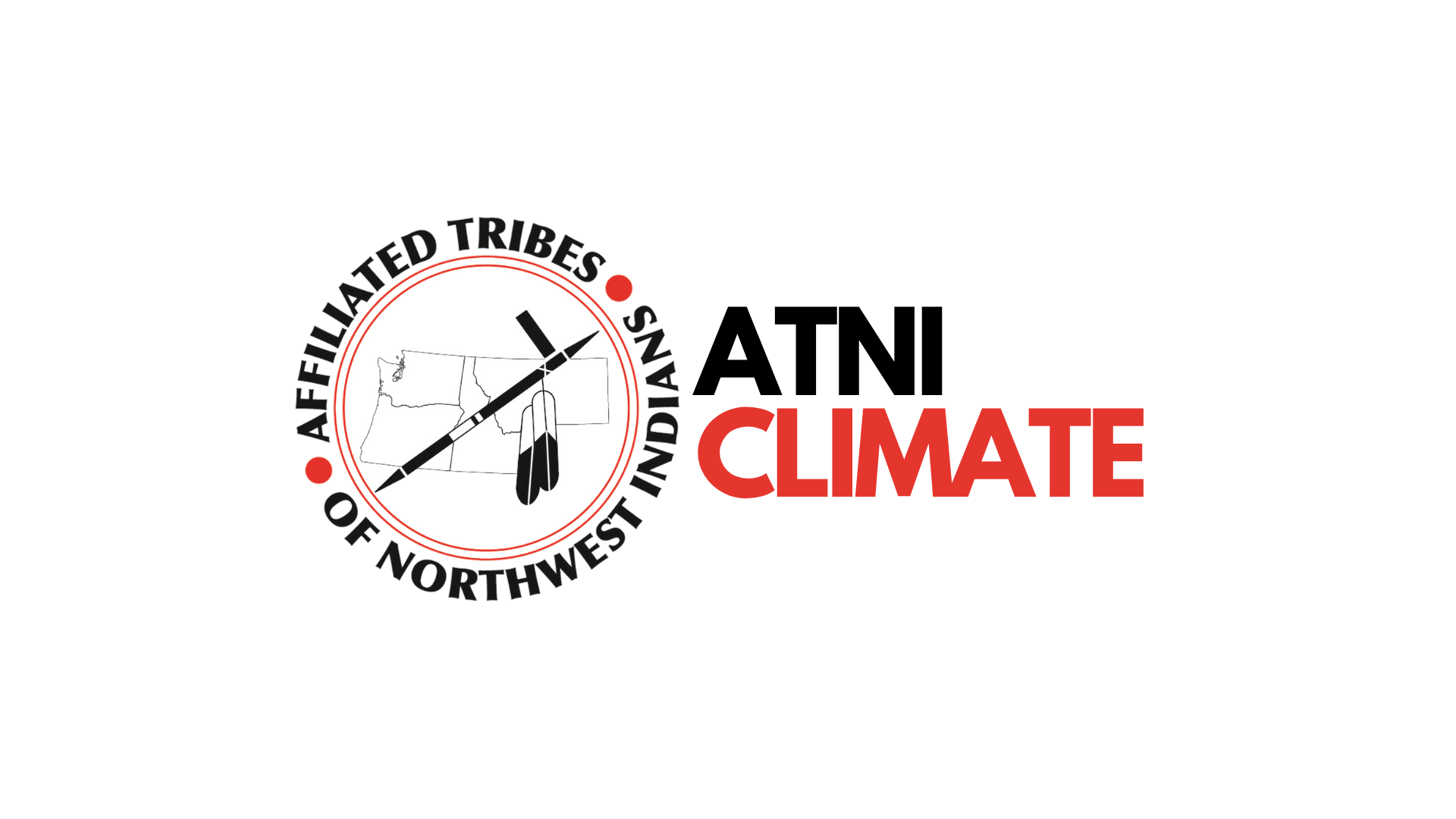2025 ATNI Winter Convention – Climate Resilience Committee Report

Affiliated Tribes of Northwest Indians (ATNI) – Winter Convention
Climate Resilience Committee – Regular Meeting Report
Date: January 28, 2025 1:30 PM – 3:15 PM, Portland, Oregon
Chair: Eddie Sherman Co-Chair
I. Overview & Purpose of the Meeting
- The Climate Resilience Committee convened to discuss strategies for advancing climate adaptation, policy advocacy, and engagement efforts for ATNI member Tribes.
- Key topics included committee strategy and leadership, policy priorities, funding opportunities, climate adaptation initiatives, and upcoming partnerships.
- No new resolutions were introduced
II. Key Discussion Points & Updates
- Committee Leadership & Structure
- Co-Chair Vacancy: The committee is seeking an elected tribal leader to serve as co-chair alongside Eddie Sherman. Nominations were encouraged, with follow-ups planned.
- Committee Charter & Purpose:
- Utilizing a phased development strategy to establish committee structure, define the intention of the committee, and detail methods for engaging Tribal Leaders
- Establishing a structured governance framework to enhance climate advocacy efforts.
- Developing a policymaking mechanism to align with ATNI’s environmental programs.
- Climate Resilience Policy & Advocacy
- Resolutions Update:
- #2024-28 Support Internal Coordination to Share and Plan for Future Climate Change Impacts
- ATNI passed a climate change strategy resolution to develop a formalized approach for tribal climate action.
- #2024-29 Support Outreach to Local Teachers to Learn about Affiliated Tribes of Northwest Indians (ATNI) Climate Change Work
- A teacher summit resolution aims to educate teachers on tribal climate priorities and sovereignty, with events planned in Eastern Washington and Oregon
- #2024-15 Supporting Tribal Engagement and Climate Action in Oregon: Endorsement of the Oregon Climate Action Commissions’ Tribal Engagement Strategy in Alignment with House Bill 3409 Priorities
- #2024-28 Support Internal Coordination to Share and Plan for Future Climate Change Impacts
- Federal & State Climate Engagement:
- Collaboration efforts to integrate Tribal climate priorities into federal and state-level decision-making.
- Call for increased consultation and funding opportunities for Tribally-led climate initiatives.
- Climate Adaptation & Resilience Programs
- Drought Resilience & Hydropower Outlook:
- NOAA’s National Integrated Drought Information System (NIDIS) is supporting Tribal drought early warning systems and adaptation planning initiatives; asking for Tribal input to address Tribal concerns
- Concerns were raised over water scarcity, energy security, and the impact of agriculture and extractive industries on Tribal lands.
- Forest & Landscape Resilience:
- Pew Charitable Trusts outlined a new strategy to enhance ecosystem resilience through climate-ready natural resource planning.
- Calls for integrating traditional ecological knowledge (TEK) into state-level landscape management.
- Sea Level Rise & Coastal Resilience:
- The Tribal Coastal Resilience Project, co-led by ATNI and UW Climate Impacts Group, is advancing policy navigation tools and funding solutions to address unmet needs identified in the report Climate Adaptation Barriers and Needs Experiences by Northwest Coastal Tribes: Key Findings from Tribal Listening Sessions
- NOAA funding secured through WA Dept. of Ecology for low-barrier, small grants program to support coastal Tribes’ climate adaptation efforts.
- Funding & Grant Opportunities
- EPA Thriving Communities Grant Program: focus on Tribal applications, with simplified processes for securing funds.
- $48 million allocated for environmental justice projects, including climate mitigation, resilience planning, and community projects.
- Washington’s Climate Commitment Act (CCA): Previous funding supported water security, energy efficiency, and community relocation efforts
- $50 million expected for tribal climate resilience projects in 2025.
- Additional Tribal Climate Funding Sources:
- The Oregon Department of Energy highlighted new Natural Climate Solutions funding aimed at supporting tribal land stewardship initiatives.
III. Key Takeaways & Next Steps
- Committee Leadership: Continued outreach to fill the co-chair vacancy with an elected Tribal leader. Nominations are open, with closing deadline and call-to-vote to be determined at a later date.
- Open Nominations:
- Jeremie Walls, Squaxin Island
- Tony DiBenedeto, Coquille Indian Tribe
- Policy Development: Further structuring of the Climate Resilience Committee Charter to guide ATNI’s climate advocacy.
- Funding Awareness & Access:
- Encouraging ATNI Tribes to pursue EPA Thriving Communities grants before the February 28 deadline.
- Preparing for the next round of Washington State CCA funding.
- Partnerships & Capacity Building:
- Expanding climate collaboration with Pew Charitable Trusts, NOAA-NIDIS, NOAA Climate Adaptation Partnerships Program, Northwest Climate Resilience Collaborative (NCRC), UW Climate Impacts Group, and state agencies.
- Strengthening Tribal participation in regional drought resilience and coastal adaptation initiatives.
- Legislative & Policy Advocacy:
- Ongoing efforts to protect Tribal water rights and fisheries from external threats (e.g., extractive industries, agricultural water exports).
- Increasing engagement with federal agencies and lawmakers to ensure Tribal climate priorities are recognized.
- Open Nominations:
IV. Closing Remarks
The Climate Resilience Committee (CRC) recognizes the urgency in light of 2024’s record-breaking climate impacts, including extreme heat, wildfire, extreme weather events, and coastal flooding that resulted in disaster costs over $380 million dollars, and $182.7 billion nationally. The CRC will continue strengthening partnerships with federal, state, and nonprofit organizations while pursuing critical funding opportunities and climate adaptation and mitigation initiatives. We encourage all Tribal leaders to actively participate in our ongoing policy development, including submitting nominations for our co-chair position and further engaging Tribes with ongoing climate adaptation initiatives and coalition building. With climate change increasingly threatening our lands, waters, and traditional ways of life, it is crucial that ATNI Tribes maintains a leadership role in climate action and ensure our communities are prepared for the challenges ahead.
Respectfully submitted
Eddie Sherman (Diné | Umóⁿ’hoⁿ) – ATNI Climate Resilience Committee Co-Chair
c/o Patrick Freeland (Muscogee Nation), ATNI Tribal Climate Resilience Liaison

